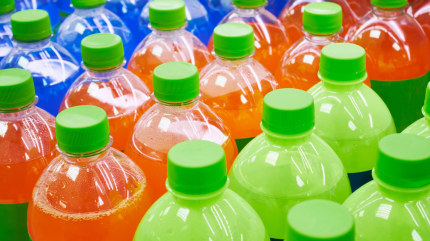
The US Food and Drug Administration (FDA) has revoked a law that previously permitted the use of brominated vegetable oil (BVO) in beverages.
The ruling will come into effect on 2 August.
Manufacturers will have a year to reformulate, relabel and use up the remaining supply of products containing BVO.
It has been legal to use BVO in the US as a stabiliser in fruit-flavoured drinks to prevent citrus flavouring from separating.
Up until now, it has been authorised for use in amounts that do not go above 15 parts per million in the finished drink.
The move comes following a series of studies conducted by the FDA and the National Institute of Health which showed the ingredient had “the potential for adverse health effects in humans”.

US Tariffs are shifting - will you react or anticipate?
Don’t let policy changes catch you off guard. Stay proactive with real-time data and expert analysis.
By GlobalDataA study conducted on rodents published in 2022 revealed oral exposure to BVO increased the risk of thyroid toxicity and bioaccumulation (the build-up of pollutants in the food chain).
The results of the recent studies led the FDA to issue a proposed rule to ban the use of BVOs in drinks in November last year.
BVO has been used as a food additive in the US since the 1920s, according to the FDA. Concerns over the safety of BVO were raised in the 1960s, forcing the national food safety body to limit the use of the ingredient to 15ppm in a finished product.
In the 1970s, animal tests raised fears over the impact of BVO on the heart but the data accumulated “did not indicate an immediate health threat from the limited use of BVO in beverages”, nor did “it establish a level at which BVO could be safely used in food over a person’s lifetime”, the FDA said.
While the FDA permitted the use of the additive in small quantities, “many beverage makers have reformulated their products to replace BVO with an alternative ingredient”, it said.
Drinks giant PepsiCo for example, cut the additive from its Gatorade sports drinks in 2013, while Coca-Cola also pledged to eliminate it from its global portfolio the following year.
BVO is also banned for use in food and drinks in the EU, Australia, New Zealand and Japan.



